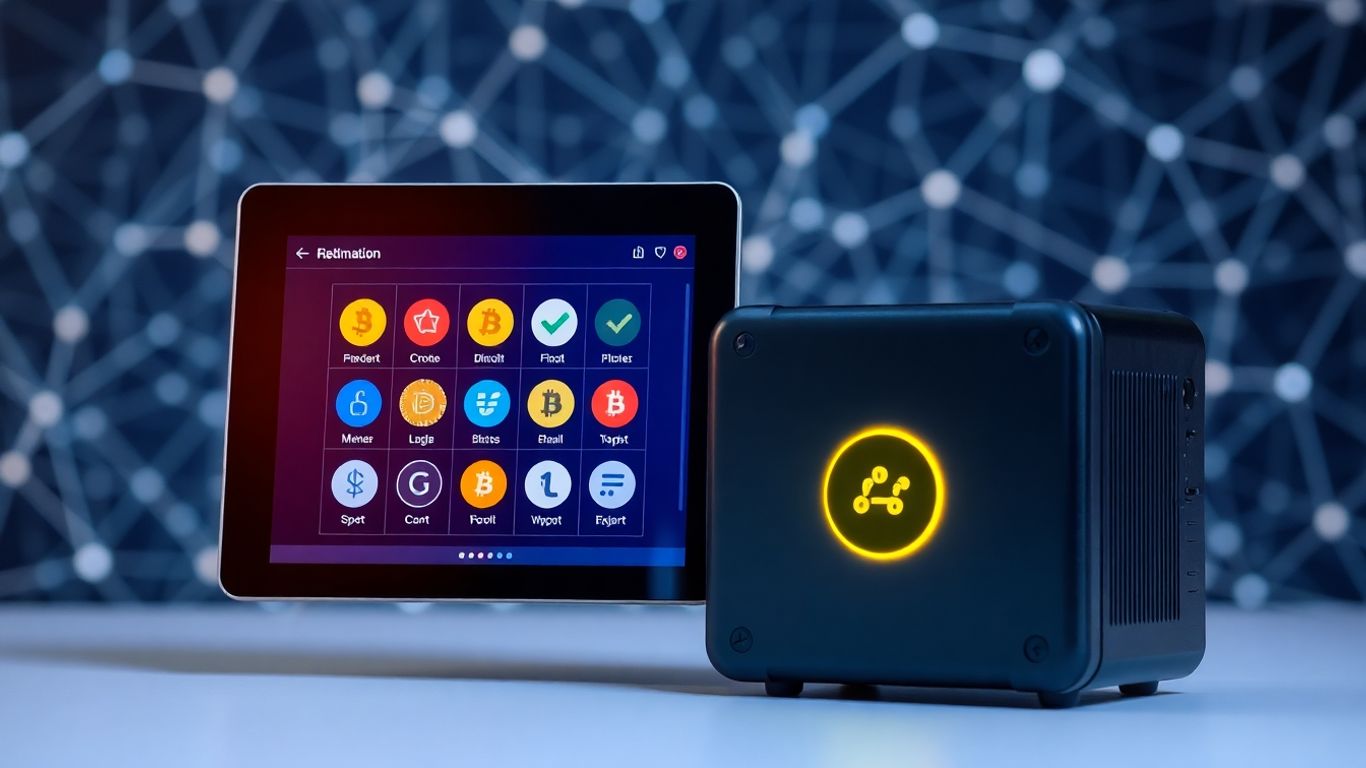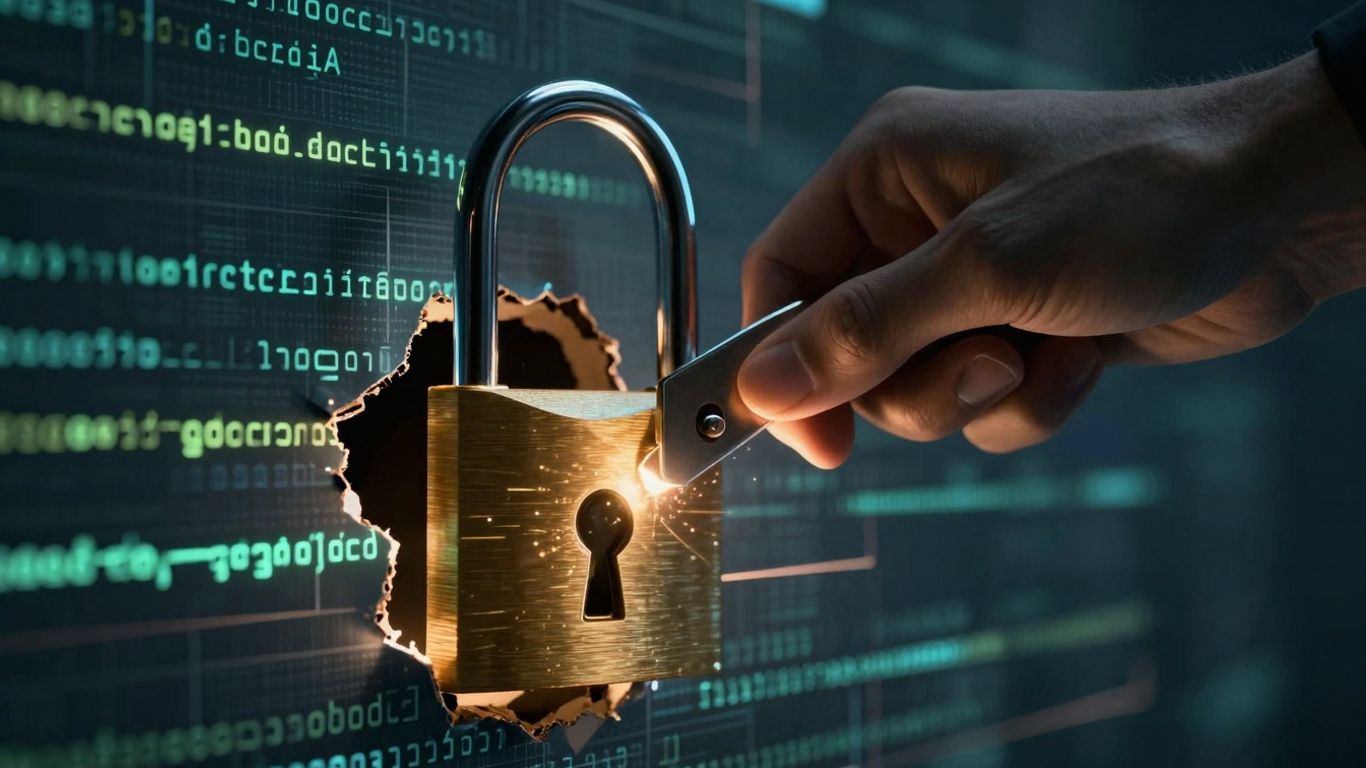[ newsletter ]
Stay ahead of Web3 threats—subscribe to our newsletter for the latest in blockchain security insights and updates.
Thank you! Your submission has been received!
Oops! Something went wrong. Please try again.
Find the best crypto wallet Reddit 2025 recommends. Explore top picks for Litecoin, Ethereum, security, and ease of use.





Looking for the best crypto wallet reddit 2025? It's a big question, and honestly, finding the right one can feel like a puzzle. So many options out there, right? We've sifted through what people are actually talking about on Reddit to help you figure it out. Whether you're just starting or you've been around the block a few times, getting your crypto storage sorted is super important. Let's break down what matters and see what the community is saying.
Picking the right crypto wallet is a big deal for anyone getting into digital money. It's not just about where your coins live; it's about how you interact with the whole crypto world. If you pick a wallet that doesn't fit, it can really mess with how easily you can use your stuff or even what you can do. So, it pays to get this right from the start.
When you're dealing with digital assets, security has to be number one. Think of your crypto wallet like a digital vault for your money. You wouldn't just leave your actual cash lying around, right? The same goes for crypto. You need a wallet that's built tough to keep your holdings safe from bad actors. Look for things like two-factor authentication, which adds an extra step to log in, making it harder for someone else to get in even if they somehow get your password. Biometric verification, like using your fingerprint or face to unlock the app, is another good layer. And end-to-end encryption is important too; it scrambles your data so only you and the intended recipient can read it.
Security isn't just about the features the wallet offers; it's also about how you use them. Being careful with your login details and not clicking on suspicious links is just as important as having strong security built into the app.
This is a pretty big point: who actually controls your private keys? With a non-custodial wallet, you're in charge. This means you get your own private keys and a recovery seed phrase. You're the only one who can access your funds. It's great because no one else can freeze your assets or take them away. But, and this is a big 'but', it means you're also solely responsible for keeping those keys and that phrase super safe. Lose them, and your crypto is gone forever. No support desk can help you if you mess this up. It's a lot of responsibility, but for many, that control is exactly why they choose crypto in the first place.
Not all wallets can handle every single type of cryptocurrency out there. They usually work with specific blockchains. So, before you even pick a wallet, you should have a good idea of what coins you plan to hold. If you think you might want to dabble in different crypto ecosystems, like Bitcoin, Ethereum, or Solana, then a wallet that supports multiple chains is a really smart move. This lets you manage all your different coins from one place. Some wallets even offer cross-chain functionality, which means you can swap coins between different blockchains without needing to use a separate exchange. That can save you time and maybe some fees too.

Alright, so you're looking to figure out which crypto wallets are actually worth your time in 2025, and you want to know what the folks on Reddit are saying? That makes sense. Reddit's a pretty good place to get real talk from people actually using this stuff day in and day out. It's not just marketing hype; it's users sharing their experiences, good and bad.
When it comes to storing your Litecoin and Ethereum, the Reddit community has definitely chimed in with some favorites. For Ethereum, MetaMask is a name you'll see pop up constantly. It's a browser extension, which makes it super easy to connect with all sorts of decentralized apps (dApps) and manage your tokens without much fuss. People like it because it's pretty straightforward to use, even if you're not a crypto wizard yet, and it has some solid security features built-in. Another one that gets a lot of mentions is MyEtherWallet, often called MEW. This one is web-based and really puts you in the driver's seat, giving you full control over your private keys and, by extension, your funds. If you're more of a mobile person, Trust Wallet is another strong contender. It supports a bunch of different coins, including Ethereum, and it's pretty convenient for managing your crypto on the go.
For Litecoin, the hardware wallet Ledger Nano S is frequently recommended. It’s known for being really secure and still pretty easy to handle, plus it can hold more than just Litecoin and Ethereum, which is handy if you're spreading your investments around. Trezor is another hardware wallet that gets a lot of love, especially from people who are really focused on keeping their privacy locked down. If hardware wallets seem like overkill or too much of an investment right now, Electrum-LTC is a software option that’s lighter and has a good reputation among Litecoin users for being secure and reliable.
What’s really interesting is how much people on Reddit emphasize security, but also how they balance that with just being able to actually use their crypto. It’s not enough for a wallet to be Fort Knox if you can’t easily send or receive funds when you need to.
Here’s a quick rundown of what Redditors often look for:
The general consensus from many discussions is that while fancy features are nice, a wallet's primary job is to keep your assets safe and let you access them reliably. If it fails at either of those, it doesn't matter how many coins it supports or how slick the interface looks.
It really boils down to what you plan to do with your crypto. If you're just holding long-term, a hardware wallet might be the way to go. If you're actively trading or using dApps, a software wallet like MetaMask might be more practical. The key is to look at what the community is saying, understand the trade-offs, and pick the wallet that best fits your personal crypto journey.
When you're picking a crypto wallet, security and how easy it is to use are super important. It's not just about keeping your digital money safe, but also about making sure you can actually use the wallet without pulling your hair out. Think of it like choosing a bank vault – you want it to be Fort Knox, but also have a door you can open without needing a secret handshake and a PhD in lockpicking.
Security is the big one, right? Most wallets offer ways to protect your account beyond just a password. Biometrics, like fingerprint or facial scans, are becoming standard on mobile wallets. They add a quick extra layer of protection. But the real heart of security is your private key, or more commonly, your seed phrase. This is like the master key to your crypto kingdom. Losing it means losing your funds, permanently. Most good wallets will guide you through writing this down and storing it somewhere safe, offline. Some hardware wallets even have special chips to protect this key.
Keeping your seed phrase secure and offline is the most critical step in protecting your crypto assets. Never share it with anyone, and store it in multiple safe locations.
There's always a trade-off between super-secure and super-easy. A hardware wallet might be the safest bet, but it's less convenient than a mobile app. You have to plug it in, approve transactions physically, and it costs money. Software wallets are usually free and quick to use, but if your phone gets hacked, your crypto could be at risk if you haven't backed up your seed phrase properly. The best wallets try to find that middle ground. They might offer features like:
For those who want even more security, especially for larger amounts or business use, there are advanced options. Multi-Party Computation (MPC) is a way to split private keys into pieces, so no single piece can access the funds alone. Multi-signature (multisig) wallets require multiple private keys to authorize a transaction. This is great for teams or if you want to add an extra layer of personal security by requiring, say, your phone and a hardware device to sign off on a transfer. It adds complexity, but for serious crypto holders, it's a way to significantly reduce the risk of a single point of failure.

When you're getting into crypto, you'll hear a lot about 'hot' and 'cold' wallets. It's basically about how your digital money is stored and how easily you can get to it. Think of it like your everyday spending cash versus your savings tucked away in a safe deposit box. Both have their place, and understanding the difference is pretty important for keeping your assets safe.
Hot wallets are the ones that are always online. This usually means they're software-based, like an app on your phone or a browser extension. Because they're connected to the internet, you can access your crypto pretty easily, making them great for quick trades or spending. You can usually get to them from multiple devices too, which is handy.
However, that constant connection is also their weak spot. Being online makes them a target for hackers and malware. If the platform hosting the wallet gets breached, or if your device gets infected, your funds could be at risk. It's like leaving your wallet on a busy street corner – convenient, but not the most secure.
The main trade-off with hot wallets is convenience versus security. You gain speed and accessibility, but you give up a degree of protection against online threats.
Cold wallets, on the other hand, are designed to keep your crypto offline. The most common type is a hardware wallet, which looks a bit like a USB drive. You plug it in only when you need to make a transaction. This offline storage means hackers can't reach your private keys through the internet. Other forms include paper wallets, where your keys are printed out.
While they offer top-notch security, cold wallets aren't as convenient for frequent use. You have to physically connect the device, enter a PIN, and confirm transactions. Plus, there's the risk of losing the physical device itself. If you lose your hardware wallet and don't have a backup of your recovery phrase, your crypto could be gone forever. It's like putting your valuables in a bank vault – very safe, but you need to go to the bank to access them.
Many people find that using both a hot wallet for daily transactions and a cold wallet for long-term storage gives them the best of both worlds.
Picking the right crypto wallet isn't just about holding coins; it's about how you interact with the whole digital asset space. Different people need different things from their wallets, whether you're just starting out or you've been in the game for a while. It's about finding a tool that fits your specific crypto journey.
These terms sound complicated, but they're pretty straightforward once you break them down. Multi-chain support means your wallet can handle coins and tokens from various different blockchains. So, instead of needing one wallet for Bitcoin, another for Ethereum, and yet another for Solana, a multi-chain wallet lets you manage them all in one place. This is super handy if you're into different crypto projects. Cross-chain functionality takes it a step further. It allows you to swap assets directly between different blockchains without needing to use a separate exchange. Think of it as being able to trade an Ethereum-based token for a Binance Smart Chain token right from your wallet. This can save you time and potentially fees.
The ability to interact with multiple blockchains and swap assets across them is a big deal for anyone serious about crypto. It cuts down on the hassle and opens up more trading possibilities.
Nobody wants to wrestle with confusing software. A good wallet should be easy to figure out, even if you're new to crypto. This means clear menus, simple transaction processes, and helpful prompts. For experienced users, an intuitive interface doesn't mean dumbed-down; it means efficient. It should allow for quick access to advanced features without making you hunt for them. A wallet that balances ease of use with powerful features is key for long-term satisfaction. Some wallets even offer educational content, like Coinbase Wallet's "Quests," which help you learn while earning crypto.
Your crypto shouldn't be stuck on just one device. Whether you prefer using your phone on the go, your desktop for more involved tasks, or even a browser extension, a wallet that works across multiple platforms is a big plus. This means you can check your balance, send or receive funds, and interact with decentralized applications (dApps) from wherever you are. Syncing between devices is also important, so your information is always up-to-date. This kind of flexibility makes managing your digital assets much more convenient. For example, Exodus is known for its versatile asset support and ease of use across different platforms, making it a solid choice for many users.
Alright, let's get down to the nitty-gritty and look at some of the crypto wallets that people on Reddit are talking about for 2025. It's not enough to just know the features; we need to see how they actually stack up in real use.
Coinbase Wallet comes from a big name in the crypto space, which gives it a certain level of trust for many users. It supports a lot of different coins, decentralized apps (dApps), and even NFTs. They've put in some solid security features like previews for your transactions, using your fingerprint or face to get in, and a list of dApps that are known to be safe. What's pretty cool is their
So, after looking at what everyone's talking about on Reddit, picking the right crypto wallet in 2025 really comes down to what you need. Whether you're all about top-notch security with a hardware wallet, or you prefer the ease of a software option for everyday use, there are solid choices out there. Remember to think about which coins you'll be holding and how you plan to use them. Don't just grab the first one you see; take a moment to compare features and make sure it feels right for you. Getting this step right is a big deal for keeping your digital money safe and sound.
When picking a crypto wallet, security is super important. Think about things like fingerprint or face ID logins, keeping your secret keys safe, and whether it can store your crypto offline. These features help protect your digital money from being stolen.
A hot wallet is connected to the internet, making it easy to use for quick trades. But, because it's online, it's more open to hackers. A cold wallet is kept offline, which is much safer for storing your crypto long-term, kind of like putting your money in a secure vault.
A non-custodial wallet means you're in charge of your secret keys, which are like the passwords to your crypto. This is safer because no company or platform can access or lose your funds if their system gets hacked. You have full control.
Yes, many wallets can hold various cryptocurrencies from different blockchain networks. These are called multi-chain wallets. It's handy because you can manage all your different digital coins from one place instead of needing a separate wallet for each one.
MPC (Multi-Party Computation) and multi-signature (multi-sig) are advanced security methods. MPC splits your private key into parts, so no single person or computer has the whole key. Multi-sig requires multiple approvals (like from different people or devices) to make a transaction. Both make it much harder for unauthorized access.
Look for wallets with simple, clear designs that are easy to understand, even if you're new to crypto. Features like easy ways to swap coins, clear transaction history, and helpful guides can make managing your digital money much smoother.


